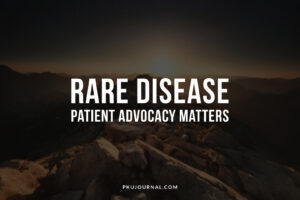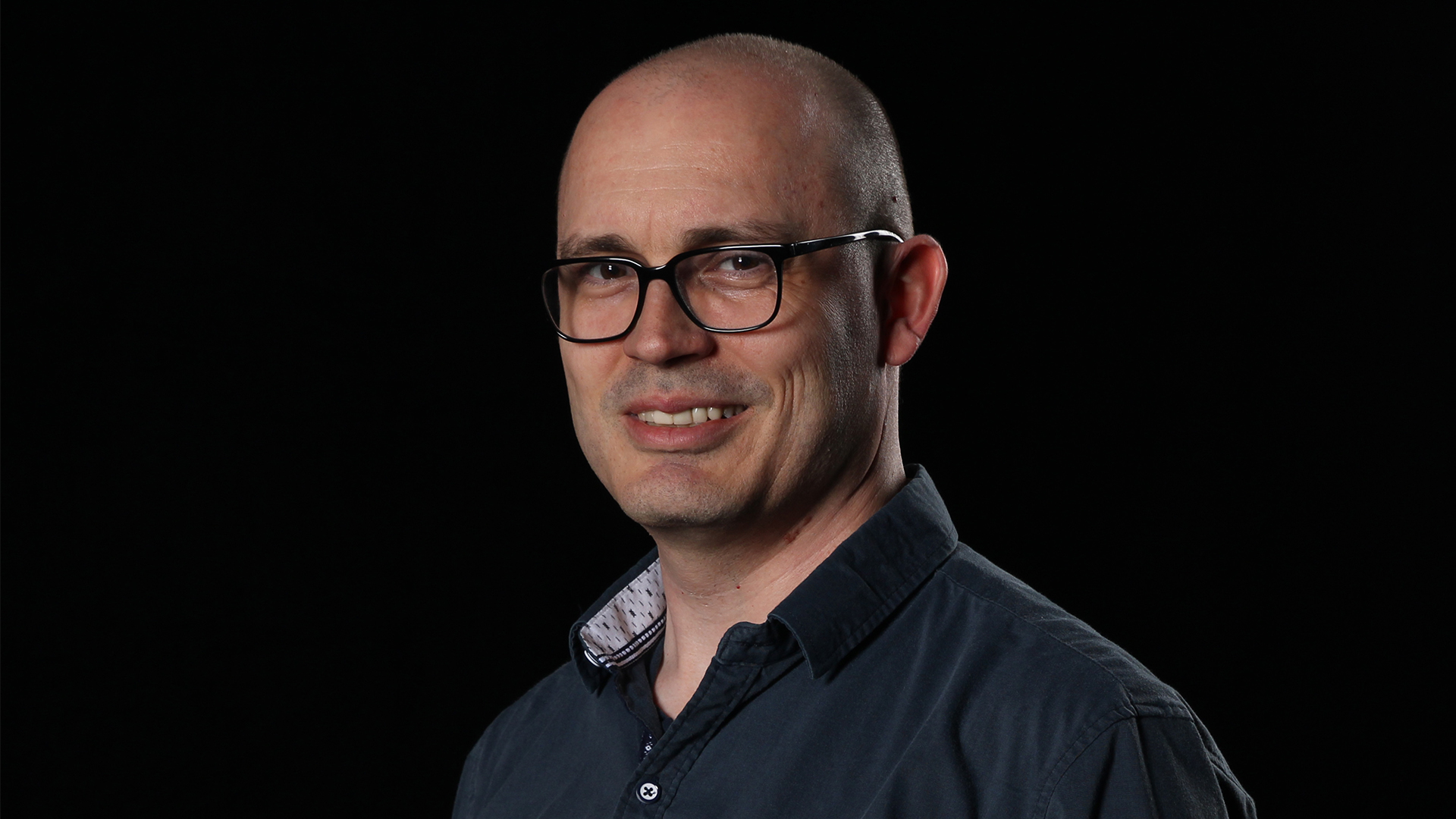Fear is the root of Imposter Syndrome. And it’s something those of us in rare disease advocacy experience. And it’s something all of us can feel when we’re on social media. This is a reflection from Never Give Up: A Rare Disease Podcast, available on Apple Podcasts and Spotify.
Confronting Imposter Syndrome as a Rare Disease Advocate
As a storyteller, my best friend is structure. It’s my road map… what I turn to when I’m in the middle of a story and have no idea how to get from point A to B. I know what I want to say, but how do I get unstuck? Think about structure.
Who are my characters? What are they doing? Why are they doing it? I know where they end up, but how do I get them there?
These are questions any storyteller asks themselves. Constantly. OK… I’m stalling for time here.
I’m talking about storytelling because I want to avoid the real topic. It’s something that plagues every storyteller, every creative person. But anyone can deal with it. Especially those of us in the rare disease community.
I’m talking about imposter syndrome.
I’d rather just talk about storytelling, because that’s where my confidence lies.
Imposter syndrome… That’s all about fear and insecurities.
I can distract myself and talk to you about storytelling all day. I live for storytelling. I can even talk to you about trauma, openly. It’s been part of my life for over 20 years.
But insecurities? Who wants to talk about that?
OK, Kevin. Enough stalling. Let’s talk… about imposter syndrome.
Taking a Trip to Finland
I don’t remember what time the plane landed. I don’t remember how jetlagged I was. I had already been on a few international flights, so that wasn’t new to me. And I don’t remember how hungry I was, but I must have been hungry. Long flights for someone with PKU when there aren’t many food options for you? Yeah. That’s fun.
All I remember is being on the bus, getting sick into a bag. Yeah. That kind of sick. In retrospect, maybe it was my nerves.
It was June, 2012. And I had just landed in Finland. We were traveling from Helsinki to Naantali, a beautiful town in the southwest area of the country. I was to be the keynote speaker at the Perkin Elmer (now Revvity) annual newborn screening symposium.
I didn’t think about newborn screening when I was growing up. I knew that I had been diagnosed with PKU when I was nine days old, after my parents received that shocking phone call – there was an abnormal result on my newborn screening test. I knew the consequences of being undiagnosed, but I tried not to think about it. When I produced my first PKU film, I still only thought of PKU. I didn’t consider the impact newborn screening had on who I am and what I’ve accomplished in life.
The ability to communicate effectively, to share my story, to produce videos… activities central to my life and profession… it was all because of newborn screening.
My speech from the 2012 PerkinElmer Annual Newborn Screening Symposium in Naantali, Finland.
My First Newborn Screening Speech
I released “My PKU Life” at a time when there wasn’t something like it in the PKU community. And social media – although it had been around for a few years, it was just beginning to enter the popular consciousness. So I became visible in our community. I created a Facebook page for PKU advocacy when it was still a new thing to have a Facebook page. At one point I received a message: “Have you ever considered public speaking?”
A little. I’d given a few speeches here and there. Not a lot, but enough not to completely freeze up at a podium. That message led to this invitation to be the keynote speaker at this gathering of doctors, researchers, and others working in the field of newborn screening.
They introduced me, I walked up to the podium, and before I began speaking I had two thoughts. “This is such an honor”… and “When will they realize that I don’t belong here? I’m just some guy from North Louisiana who made a YouTube video!”
I wish I could say I’ve shaken that feeling. I haven’t.
Imposter Syndrome—Driven by Fear
Yes, I have imposter syndrome. That feeling that one day people will wake up and realize that I’m a phony. That I don’t have it all together. That I’m still trying to figure things out in life even when people are looking to me for answers.
I like to say that my imposter syndrome has imposter syndrome.
I’ve been a storyteller, professionally, for over 20 years. You would think that if you spend enough time doing something that you’d eventually feel like you belong, that you know what you’re doing. So many creatives deal with this feeling.
But not just creatives. I think anyone in life, anyone in business, any leader, anyone can deal with imposter syndrome, because it’s all driven by the most basic of human emotions – fear.
I am afraid.
I said this topic isn’t fun to talk about, and that’s because we often go through life wearing these masks that hide our true selves. Afraid that if the world sees us for who we really are they will reject us.
Now, I’m not advocating for complete transparency. Privacy is important, after all. But a little bit of vulnerability is a good thing.
Taking off that mask, just a little, and revealing something of our true selves to the world… that can be a good thing.
That’s what I did so many years ago when I shared my PKU story, and it changed my life.
But I think that’s one of the answers to imposter syndrome.
Sharing your story.
The Power of Story
When we share our experiences with others it helps us feel like we aren’t alone. And those who hear our stories feel like they aren’t alone. Stories build communities. Every nation, group of people, every online community… every gathering of people is formed by sharing a common narrative.
Stories help us make sense of the world.
Also, by sharing your story you discover your voice. There is power in hearing your voice, figuratively and literally. On one hand, you learn more about yourself… your unique perspective. What only you can give to this world. But also, when you physically hear your voice as you share your story, it builds confidence.
I began to learn this when I entered the world of PKU, newborn screening, and rare disease advocacy. But even while working on this podcast, I’m discovering it all over again.
My stories begin in my journal… handwritten. Eventually, I convert them to script form. They begin to take shape and come to life when I select the music. But it’s not until I’m in the recording booth, listening to the music in my headphones and speaking the words that I’ve written, that the story finally comes alive.
It’s hard for me to admit that. I am a writer, after all. I believe in the power of words. Reading alone is enough to change hearts and minds.
But with these stories I don’t truly feel them until I speak them.
The Power of Your Voice
There is power in discovering your voice. There is power in hearing yourself share your story. It builds confidence.
And confidence is the antidote to imposter syndrome.
You may think that no one is interested in your story. I certainly felt that way years ago. When I produced that first PKU film I thought to myself, “Well, that was fun. It would be great if someone ever saw this.” I had no idea how that story would change my life.
And when I gave that speech in Finland… somewhere along the way as I shared my story, and heard my voice, I spoke with confidence. The audience energized me. I looked into their eyes, and I knew that my story mattered to them.
That was the first of many advocacy trips. I’ve since been to Brazil, Australia, Germany, and all over the U.S., sharing my story and producing other PKU and newborn screening films.
And along the way, I’ve kept learning… that anytime my confidence begins to waver, the best thing I can do… is to share my story again. And to keep speaking up.
Fight the Fear
You, like me, may deal with imposter syndrome. It’s tempting to look at a group as large as the global rare disease community and feel like you don’t fit in. That because others have a harder time with a rare disease… that your experience doesn’t matter.
It does. You matter.
Your story is unique. Only you can tell it. And the world needs to hear it.
The world needs to hear as many stories as possible about rare diseases so that they will realize that as a community, we are not rare. We are hundreds of millions of people across the world, united in a shared experience.
Our voice… is powerful.
So, tell your story. Fight back against fear and insecurity. Don’t let imposter syndrome have the final word in your life.
And never, never, never give up.











Leave a Reply